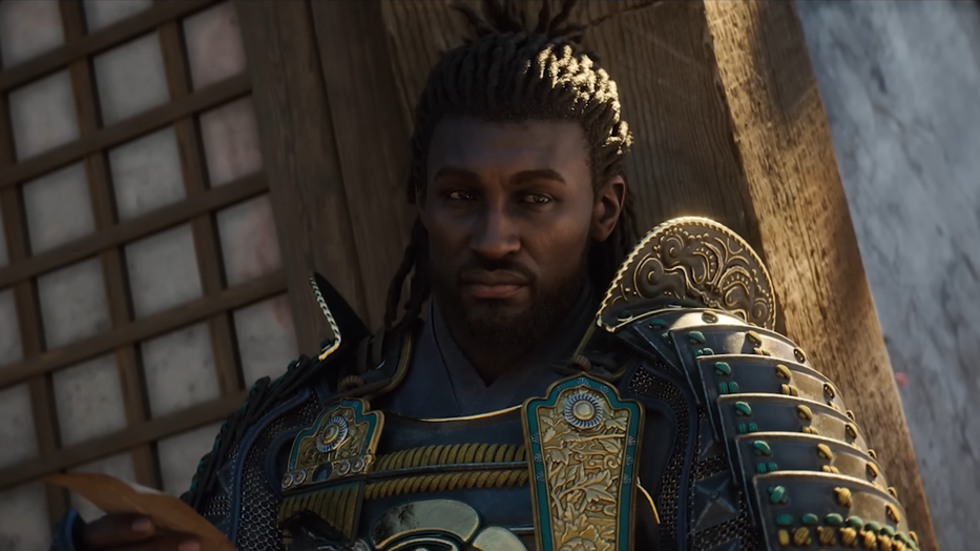What lies beneath the surface of the newest Assassin’s Creed game? Is it a celebration of diversity and inclusivity or a standout display of captivating storytelling and historical authenticity?
The Latest Adventure in Assassin’s Creed; Exploring Feudal Japan
In November 2024, Ubisoft Quebec is set to unveil a fresh chapter in the beloved Assassin’s Creed franchise titled "Assassin’s Creed Shadows." This installment whisks players away to Feudal Japan, introducing two main characters; Naoe, a skilled Japanese female ninja and Yasuke, an African samurai. The rich tapestry of ninjas, samurais and Japanese traditions has ignited excitement among fans ever since early leaks surfaced in 2021 after the success of "Ghost of Tsushima."
Twin Protagonists; A Familiar Concept
Having two protagonists is not new to the world of Assassin’s Creed. In "Syndicate," which unfolded in Victorian London, players engaged with the game through the perspectives of siblings Jacob and Evie Frye, each showcasing distinct combat techniques. Similarly, "Origins," delving into the origins of the Assassin Brotherhood in Ancient Egypt, allowed players to take on missions controlling Aya, Bayek's partner.
So what sets apart the reception towards "Shadows" this time around?
The Yasuke Debate; Historical Figure or Inclusive Representation?
The introduction of Yasuke, an African man residing in Japan during Oda Nobunaga's rule in the 16th century, has sparked discussions. There is a historical ambiguity surrounding Yasuke's status, with historians debating whether he was a samurai or simply a servant. His portrayal in the game has led to mixed reactions.
Some contend that while Yasuke's tale is intriguing, it lacks substantial historical significance in Japan. Critics argue that his inclusion may be more about meeting diversity quotas than enhancing the storyline.
Assassin’s Creed and its Portrayal of Historical Figures
The series is known for featuring well known historical figures like Leonardo Da Vinci, Napoleon, Cleopatra, Socrates and Benjamin Franklin. These characters help players immerse themselves in different eras and feel connected to history. The decision to spotlight Yasuke instead of more impactful Japanese historical figures has left many fans puzzled.
Diversity vs. Narrative; The Gaming Community’s Divergent Views
The choice to showcase a non Japanese lead character has stirred debate within the gaming community. Some gamers express frustration over what they perceive as forced diversity. They argue that introducing a character solely for the purpose of promoting inclusivity may diminish the game's authenticity.
On the flip side, some people appreciate the new perspective in the story and value the attempt to shine a light on lesser known historical figures.
Despite receiving a mix of reactions, "Shadows" has already gained significant attention. It currently holds the top spot in sales on Amazon Japan, showing strong anticipation for the game despite any controversies.
Challenging Stereotypes or Upholding Them?
There's a larger discussion surrounding stereotypes in storytelling. While narratives based on familiar themes like cowboys, samurai or WWII soldiers may initially attract interest, their success ultimately depends on the richness of the story and character development.
"Red Dead Redemption 2" is often used as an example of a game that went beyond its cowboy theme through engaging storytelling. Can "Assassin’s Creed Shadows" achieve similar heights or will it be overshadowed by its choice of characters?
Drawing Comparisons to Ghost of Tsushima
Released in 2020, "Ghost of Tsushima," which focused on Japan's first Mongol invasion, set a high standard for games set in Japan. Many view "Shadows" as Ubisoft's response to this success. However, there are concerns that Ubisoft might repeat past design errors and deliver another generic open world experience that doesn't capture Japanese culture as effectively as "Ghost of Tsushima.""The period of anticipation and speculation; The gaming community is abuzz as the release date draws near. Fans are thrilled yet wary, aware of Ubisoft's history of releasing games with numerous bugs that are later fixed through patches and updates. Regardless of the initial reception, the game's ultimate success will likely be measured by Ubisoft's financial performance for the year.
Final Thoughts; Success or Excessive? "Assassin’s Creed Shadows" finds itself at a crossroads between historical narrative and contemporary inclusivity. Whether it will be hailed as a historical success or criticized for being overly progressive remains uncertain. What is clear is that it has sparked a vibrant dialogue on the balance between authenticity and diversity in gaming, a conversation that is sure to persist long after the game's launch."
Is this content hitting the mark for you? If so, consider supporting my work—buy me a virtual coffee! ☕ Your support keeps the ideas flowing. Thanks so much! 🙏 Please Contribute via GoGetFunding



